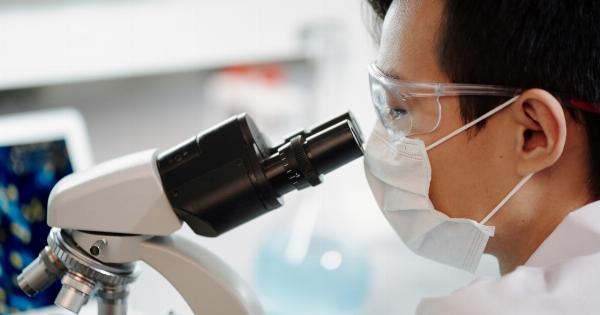Cancer is a devastating disease that affects millions of people worldwide. It is a leading cause of death and has a significant impact on the lives of patients and their loved ones.
While the exact causes of cancer are complex and multifactorial, there are several common cancer-fueling effects that play a role in the development and progression of this disease.
Aging and Cancer Risk
As individuals age, their risk of developing cancer increases. This is largely due to the accumulation of DNA damage over time.
Aging cells have a reduced ability to repair DNA damage, leading to an increased likelihood of mutations that can promote the development of cancer. Furthermore, aging is often associated with a weakened immune system, which can also contribute to cancer growth.
Genetics and Cancer Susceptibility
While not all cancers are hereditary, certain genetic mutations can significantly increase an individual’s risk of developing this disease.
For example, mutations in the BRCA1 and BRCA2 genes are strongly associated with breast and ovarian cancers. These genes normally help prevent uncontrolled cell growth and repair DNA damage. In individuals with mutations in these genes, the risk of developing cancer is significantly elevated.
Lifestyle Factors and Cancer
Several lifestyle factors have been linked to an increased risk of cancer.
Smoking, for instance, is a major contributor to the development of lung cancer, as well as several other types of cancer including throat, mouth, bladder, pancreas, and kidney cancer. Excessive alcohol consumption, poor diet, lack of physical activity, and exposure to certain environmental toxins are also known cancer-fueling effects that can significantly raise the risk of developing this disease.
Obesity and Cancer
Obesity is a growing global health concern and is closely associated with an increased risk of cancer.
Fat cells produce hormones and growth factors that can promote cancer cell growth, angiogenesis (formation of new blood vessels to nourish tumors), and the spread of cancer cells to other parts of the body (metastasis). Furthermore, obesity often leads to a state of chronic inflammation, which can create an environment conducive to cancer development.
Chronic Inflammation and Cancer
Chronic inflammation is thought to play a key role in the development and progression of many types of cancer.
When the body is exposed to long-term inflammation, immune cells release various signaling molecules that can promote cell growth and inhibit cell death, creating an environment that is favorable for the growth of cancer cells. Conditions such as chronic infections, autoimmune diseases, and long-term exposure to irritants or toxins can all contribute to chronic inflammation and increase the risk of cancer.
Hormones and Cancer
Hormones play a critical role in various bodily functions, but they can also influence cancer development. For example, estrogen and progesterone can promote the growth of certain types of breast cancer.
Hormone replacement therapies, oral contraceptives, and exposure to high levels of environmental hormones such as those found in certain plastics and pesticides can disrupt hormone balance and contribute to cancer formation.
Ionizing Radiation and Cancer
Exposure to ionizing radiation, such as that from medical imaging tests (X-rays, CT scans) or radiation therapy for cancer treatment, increases the risk of developing cancer.
Ionizing radiation damages DNA and other cellular structures, leading to mutations that can initiate or promote cancer growth. The risk of radiation-induced cancer depends on the dose and duration of exposure, as well as individual susceptibility.
Viruses and Cancer
Viruses are responsible for a significant portion of cancer cases worldwide.
Certain viruses, such as human papillomavirus (HPV), hepatitis B and C viruses, and Epstein-Barr virus (EBV), can cause persistent infections that lead to chronic inflammation and DNA damage in infected cells. Over time, this can lead to the development of cancer. Vaccinations against these viruses can significantly reduce the risk of associated cancers.
Stress and Cancer
Chronic stress has been implicated in a variety of health problems, including cancer. Stress can disrupt immune function, create an imbalance in hormone levels, and increase inflammation, all of which can contribute to cancer formation.
While the direct link between stress and cancer is still being explored, managing stress levels through various techniques, such as exercise, mindfulness, and social support, is essential for overall wellbeing.
Immune System Dysfunctions and Cancer
A healthy immune system plays a crucial role in identifying and eliminating cancer cells. However, certain immune system dysfunctions can impair this process, allowing cancer cells to evade detection and destruction.
Examples of immune system dysfunctions that can fuel cancer include immunodeficiency disorders, chronic infections, and autoimmune diseases.
Conclusion
While cancer has a complex etiology, with various genetic and environmental factors contributing to its development, understanding the cancer-fueling effects discussed above is crucial.
By addressing these risk factors through lifestyle modifications, early detection, and treatment, we can reduce the burden of this disease and improve outcomes for those affected by cancer.
























